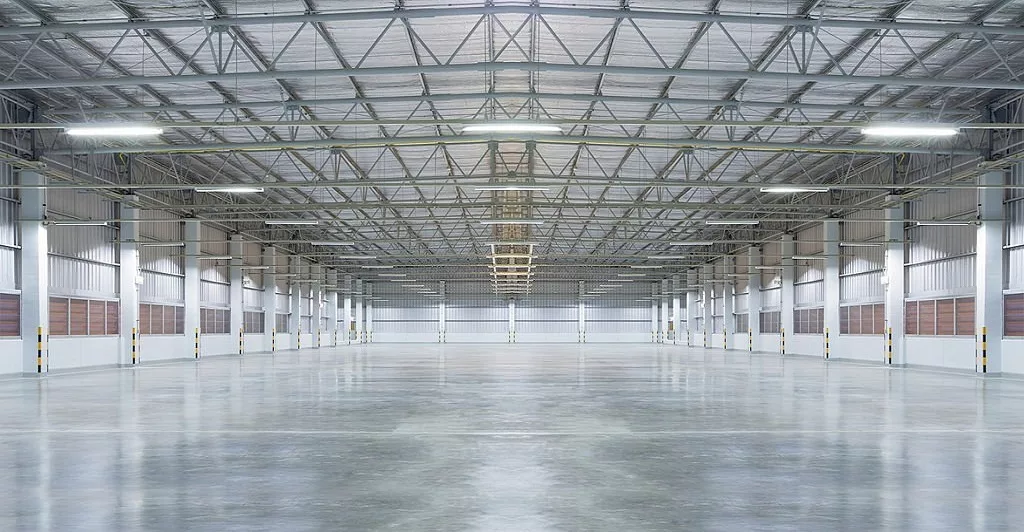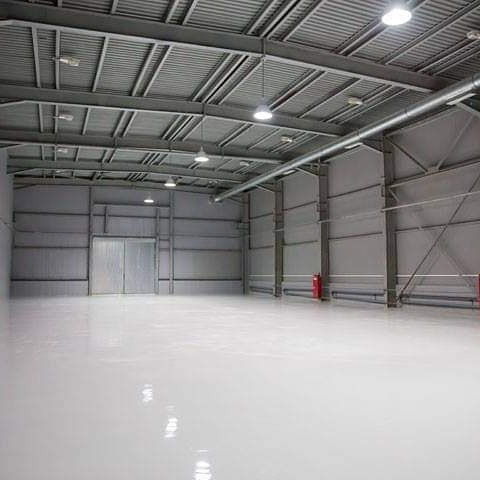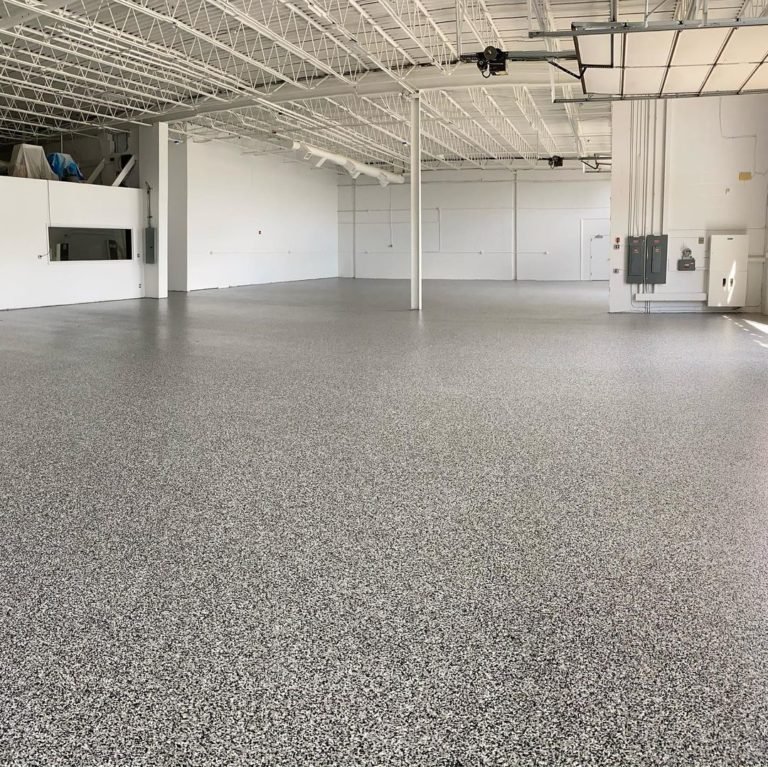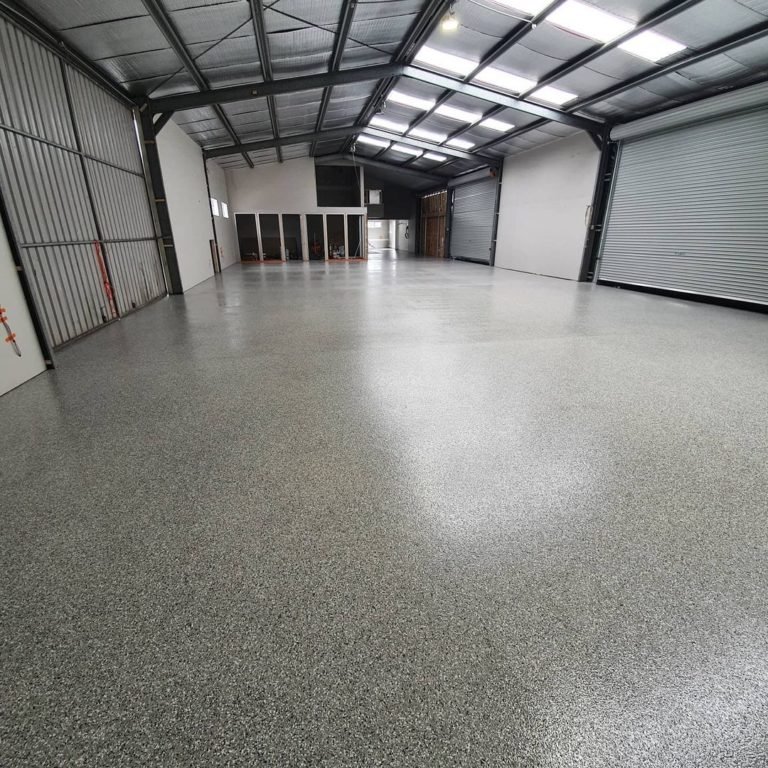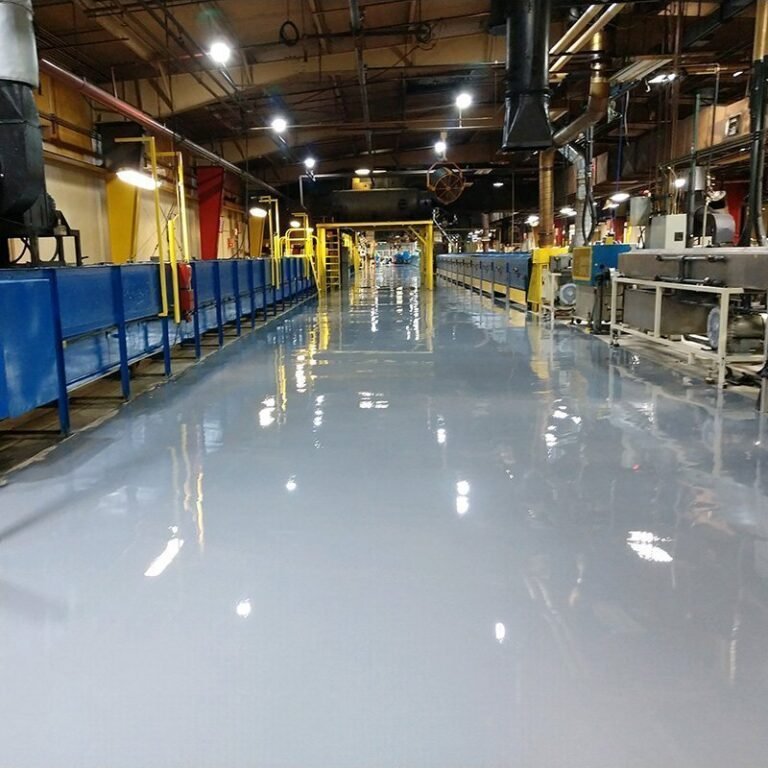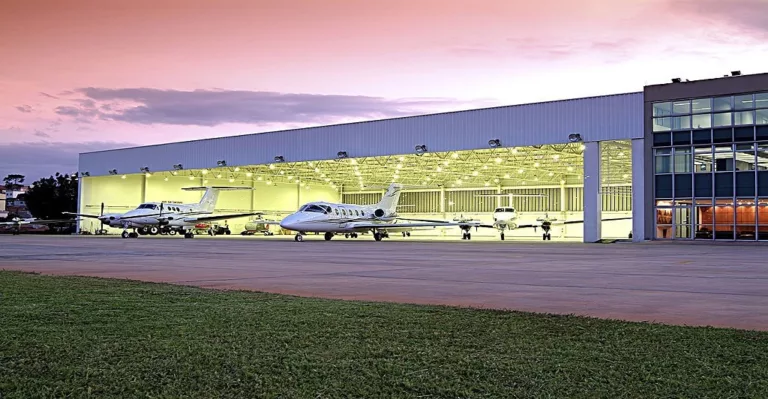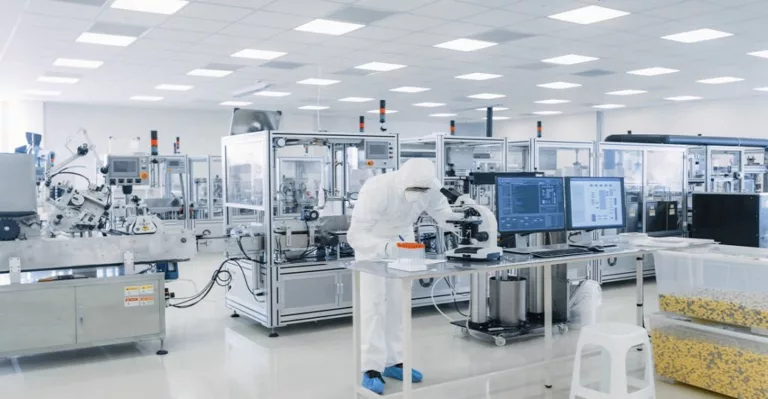Top Benefits of Industrial Epoxy Flooring — Vancouver & British Columbia
How industrial epoxy flooring improves durability, safety, cleanability and lifecycle cost for factories, plants, warehouses and heavy-duty facilities across Vancouver & BC.
Industrial facilities are tough on concrete. Forklifts grind over joints, chemicals spill in production areas, pallets drag across aisles and safety inspections keep raising the bar. A standard concrete slab—or basic paint-type coating—usually can’t keep up.
Industrial epoxy flooring is engineered for exactly these conditions. When it’s specified correctly and installed over properly prepared concrete, it delivers a seamless, chemical-resistant surface that can handle heavy loads, aggressive cleaning and long operating hours. Below are the key benefits and where they really pay off in Vancouver and across BC.
What is industrial epoxy flooring?
Industrial epoxy flooring is a high-build resin system made by combining an epoxy resin and hardener, then applying it over mechanically prepared concrete. The material cures into a dense, rigid surface that bonds tightly to the slab and can be layered for extra thickness, texture and chemical resistance.
In factories, plants and warehouses, industrial epoxy is often installed as a multi-coat system: primer, body coat or epoxy mortar, optional aggregate/flake broadcast and a heavy-duty topcoat. Each layer is chosen for a purpose—adhesion, impact resistance, texture, aesthetics or chemical protection.
Top benefits of industrial epoxy flooring
- Designed to withstand forklifts, scissor lifts, pallet jacks and loaded racking.
- High-build and mortar systems protect the concrete from impact and point loads.
- Resists abrasion from turning wheels, dragged pallets and frequent traffic.
- Reduces slab damage, patching and unplanned shutdowns for floor repairs.
- Seamless, non-porous surface that won’t soak up oils, fuels, coolants or solvents.
- Helps contain spills on the surface so cleanup is faster and more effective.
- Protects concrete from long-term softening, etching and chemical attack.
- Supports environmental and safety programs by simplifying spill response.
- Longer service life than many thin coatings or basic floor paints.
- Requires less scrubbing and fewer harsh chemicals to keep clean.
- Localized re-topcoats can refresh high-wear lanes without full replacement.
- Lower total lifecycle cost compared with constant patching of bare concrete.
- Slip-resistant textures tuned for wet or oily zones, loading docks and wash bays.
- High-gloss, light-reflective finishes improve visibility in aisles and work cells.
- Built-in line striping, walkways and hazard zones for better traffic control.
- Supports safety audits and internal standards by formalizing floor markings.
- Solid industrial greys or safety colours for production halls and warehouses.
- Decorative flake or metallic options for showpiece zones, lobbies or client tours.
- Colour zoning for different processes, storage areas and pedestrian routes.
- Makes older facilities look organized, modern and well-maintained.
- Industrial epoxy systems can often be installed in phases around operations.
- Fast-cure primers and topcoats reduce the time areas are out of service.
- Night, weekend or shutdown work windows can be used to minimize disruption.
- Well-planned projects combine curing schedules with production changeovers.
Where industrial epoxy floors perform best
Across Vancouver and BC, industrial epoxy flooring is used anywhere concrete needs to be stronger, safer and easier to clean:
- Factories & manufacturing plants: production lines, assembly areas, equipment pads and mixing rooms.
- Warehouses & logistics hubs: forklift aisles, racking rows, shipping/receiving and cross-dock zones.
- Food & beverage facilities: packaging, coolers, dry storage and select wash-down areas (often with urethane cement).
- Industrial workshops & maintenance bays: service pits, tool areas, welding stations and equipment rebuild zones.
- Utility & plant rooms: boiler rooms, pump rooms, chemical dosing areas and waste-handling spaces.
Design & maintenance practices that maximize those benefits
The advantages of industrial epoxy flooring are only fully realized when the system is specified and maintained with real-world operations in mind.
- Test for slab moisture and contaminants (oils, curing compounds, adhesives).
- Choose system thickness based on forklifts, point loads and impact risk.
- Detail coves, drains and joints in wet or wash-down zones from the start.
- Plan colour zones and line markings to support safety and material flow.
- Remove grit and debris that can prematurely wear topcoats.
- Clean oils, chemicals and food products promptly before they sit.
- Use pH-appropriate cleaning products approved for resin systems.
- Keep wheels, skids, dock plates and pallet jacks in good repair.
- Inspect turning lanes, loading docks and door thresholds for wear.
- Schedule re-topcoats in high-traffic areas before the body coat is exposed.
- Repair localized impact damage and cracks to prevent migration.
- Document maintenance to support safety, quality and audit requirements.
- Change of use: heavier loads, more aggressive chemicals or hot-wash cleaning.
- Recurring failures in the same areas despite repairs.
- New regulatory or client requirements for hygiene and traceability.
- Plant expansions where you want one consistent flooring standard.
How long does industrial epoxy flooring typically last?
In properly prepared industrial settings, epoxy floors commonly last 5–10+ years, and longer when high-wear lanes are re-topcoated on a planned schedule. Lifespan depends on traffic, loads, chemicals and maintenance practices.
Is industrial epoxy flooring suitable for heavy forklift traffic?
Yes—provided the system is designed for it. High-build epoxy or epoxy mortar systems are routinely used under forklifts, pallet jacks and racking. Correct thickness, joint detailing and impact protection are key.
Can epoxy floors handle chemicals, oils and coolants?
Industrial-grade epoxies are formulated for chemical resistance and can be matched to your specific products and processes. In very aggressive environments, we may recommend hybrid systems with urethane or urethane cement in targeted zones.
Are epoxy floors slippery in industrial environments?
They don’t need to be. We specify slip-resistant textures and aggregates by zone to balance traction and cleanability. Wet, oily or sloped areas receive a different texture than dry aisles or offices.
Can upgrades be phased so production keeps running?
Yes. Industrial projects are often completed in phases, working around equipment and shift schedules. We can combine night work, weekends and shutdown windows with fast-cure topcoats to keep disruption under control.
Priority One Epoxy Flooring provides site assessments, written specifications and turnkey installation for industrial epoxy systems across Vancouver and British Columbia—from factories and plants to warehouses, food facilities and logistics hubs.

